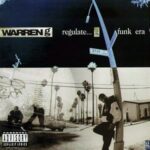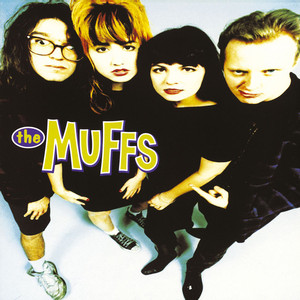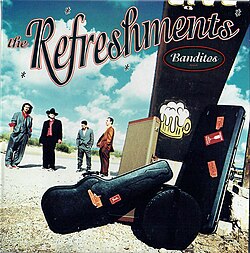When “Regulate” by Warren G and Nate Dogg dropped in the spring of 1994, it felt like an unexpected lightning bolt from the clouds—smooth, slick, and instantly classic. Though it was born in the golden age of West Coast hip hop, “Regulate” didn’t roll up with the aggression of N.W.A. or the stark realism of Ice Cube. Instead, it glided in on the laid-back breeze of G-funk, swaying to a sample from Michael McDonald’s “I Keep Forgettin’ (Every Time You’re Near),” with Nate Dogg’s baritone croon guiding the way. What Warren G and Nate Dogg created in that 4-minute narrative wasn’t just a hit single—it was a moment. A West Coast fairytale of danger, chance, swagger, and cool composure that set the tone for the rest of the decade.
“Regulate” emerged from the unlikely musical epicenter of Long Beach, California, a place that had suddenly begun to assert itself as a powerhouse of West Coast hip hop. Warren G, stepbrother of Dr. Dre, had grown up in the same streets as Snoop Dogg and Nate Dogg, but his rise was more behind the boards than in front of the mic. As a producer and beatmaker, Warren G was part of 213—the trio formed with Snoop and Nate. But when “Regulate” came together, it wasn’t just a local release. It became a national phenomenon.
The track made its debut as part of the Above the Rim soundtrack, a collection curated by Death Row Records to accompany the Tupac Shakur-starring basketball film. But “Regulate” stood out like a polished gem on a street paved with grit. The beat shimmered—subtle synth pads floated over that now-iconic Michael McDonald loop, while the slow tempo gave the song the sense of a hazy afternoon turning into a breezy night. It was both cinematic and intimate. The moment Nate Dogg came in with the immortal “It was a clear black night, a clear white moon,” you were hooked. This wasn’t just a rap song—it was storytelling as world-building.
The lyrics of “Regulate” operate like a miniature film noir. Warren G, rolling solo through the streets looking for a game, is set upon by a group of robbers. Nate Dogg, meanwhile, is on his own quest, looking for Warren and ending up both rescuing him and encountering a car full of women ready for an escapade. It’s an unusual combination of vigilante justice, street savvy, and romance—all told in a low, slow flow that made the street feel more like a boardwalk. Nate’s deep voice gave the song gravity, while Warren G’s more nasal, casual delivery offered levity. It was yin and yang, hood and harmony.
What truly elevated “Regulate” wasn’t just the story or the beat—it was how different it felt from everything else in 1994. That year, hip hop was at an inflection point. Nas had just released Illmatic. Biggie was ascending. On the West Coast, Death Row was running the show, with Dre, Snoop, and Tupac at the helm. Meanwhile, “Regulate” came out under Def Jam’s West imprint and charted its own course, pulling listeners not into a turf war, but into a grooving joyride.
Warren G’s production style embodied G-funk at its finest—sampling ’80s R&B and soul with lush synthesizers, echoing drums, and a focus on melody over menace. It was a clean, polished sound, but one that didn’t abandon the street. That balance is what made “Regulate” such a breakthrough. It was cool but not cold. Tough but not threatening. It invited everyone in, not just the hardcore rap heads but also the casual listener, the R&B fan, the radio audience, and even skeptics who’d written off hip hop as too abrasive.
One of the key weapons in “Regulate’s” arsenal was Nate Dogg himself. Though he was already known in Southern California, this song cemented his national profile. His melodic hooks became the secret sauce of West Coast rap for the next decade. Without Nate Dogg, there’s no “21 Questions,” no “Area Codes,” no “The Next Episode” chorus. He was the uncredited architect of hip hop choruses, and “Regulate” was the blueprint. His voice was deep and soothing, almost paradoxically calm while describing scenes of violence or seduction. He made the streets sound like Sunday morning gospel.
Lyrically, the song walks a tightrope. It talks about attempted robbery, gunplay, cruising for women, and other hallmarks of street life—but it does so with a remarkable lack of posturing. There’s no braggadocio. No glorification. Warren G is mugged. Nate Dogg has to shoot attackers. But the violence isn’t celebrated; it’s part of the setting. In fact, the whole song functions more like a buddy cop movie or a street-level sitcom. There’s tension, sure, but also camaraderie, coolness, and ultimately a sense of triumph. The protagonists end the night not in a blaze of glory, but riding into the sunset.
Commercially, “Regulate” was a juggernaut. It hit No. 2 on the Billboard Hot 100, blocked from the top only by All-4-One’s “I Swear.” It turned both Warren G and Nate Dogg into household names and established G-funk as the most palatable hip hop subgenre for mainstream audiences at the time. The track went platinum and earned a Grammy nomination, and more importantly, it’s never really left the culture. Decades later, it remains one of the most instantly recognizable songs of the ‘90s. DJs still spin it, rappers still name-check it, and its opening lines are still quoted with reverence.
The success of “Regulate” helped Warren G launch his solo career, including his debut album Regulate… G Funk Era, which went triple platinum. That album expanded on the sound and atmosphere of the single, blending laid-back vibes with stories from Long Beach life. While Warren G never matched the chart success of “Regulate” again, his influence as a producer and bridge-builder in West Coast hip hop was sealed. He wasn’t the loudest or the flashiest, but he had the beat.
As for Nate Dogg, “Regulate” was the start of an incredible run. Though he never achieved solo superstardom in the traditional sense, he became a kind of rap world utility knife—the go-to hook man who elevated songs by Eminem, Ludacris, Snoop, 50 Cent, and countless others. His voice was so singular that hearing it on a track was like getting the stamp of West Coast authenticity. And it all began with that moonlit drive in “Regulate.”
Beyond its initial success, “Regulate” has held up extraordinarily well. It’s a time capsule of mid-‘90s cool, but it doesn’t sound dated. That’s partly due to its reliance on timeless melodies—Michael McDonald’s smooth groove never goes out of style—but also because the song’s tone and attitude are still refreshing. It doesn’t feel like a relic; it feels like a mood. Its influence echoes across hip hop and R&B, from the sing-rap hybrids of Drake and Post Malone to the smooth West Coast anthems of Kendrick Lamar. You can draw a line from “Regulate” to the entire concept of melodic rap.
Culturally, “Regulate” also broke barriers. It was one of the first gangster rap-adjacent tracks to be widely embraced by white suburban audiences without compromise. It opened doors for conversations about what hip hop could sound like—expanding the soundscape beyond boom-bap and hardcore into lush, groove-based compositions. It was the sound of a new era, and it announced itself not with a bang, but with a cool nod.
One of the more surprising aspects of “Regulate” is how humorous and understated it is. There’s a quiet self-awareness to Warren G’s verse when he realizes he’s outnumbered or Nate Dogg’s casual detour to flirt with the women they meet. It’s almost like a hip hop sitcom, where danger is quickly resolved and the protagonists land on their feet. That charm is part of why the song hasn’t aged poorly. It’s fun without being corny, gritty without being bleak.
Looking back, it’s clear that “Regulate” was a once-in-a-generation kind of record. It didn’t just define a sound—it offered a blueprint for storytelling in hip hop that didn’t rely on volume or violence but on mood and vibe. It helped usher in a phase of West Coast dominance, paved the way for hook-driven rap songs, and created a moment of harmony in a genre often defined by its chaos. When you hear the song today, it’s hard not to picture cruising down palm-lined streets, bass vibrating through the air, the sun beginning to set over Los Angeles.
Warren G and Nate Dogg didn’t set out to write a classic. They weren’t chasing trends or trying to make a pop crossover. They just made something that felt real to them—cool, confident, and smooth. That honesty gave the song its staying power. “Regulate” doesn’t shout its greatness; it glides by, nodding to you from the driver’s seat, inviting you to hop in and take a ride.
And what a ride it’s been.



